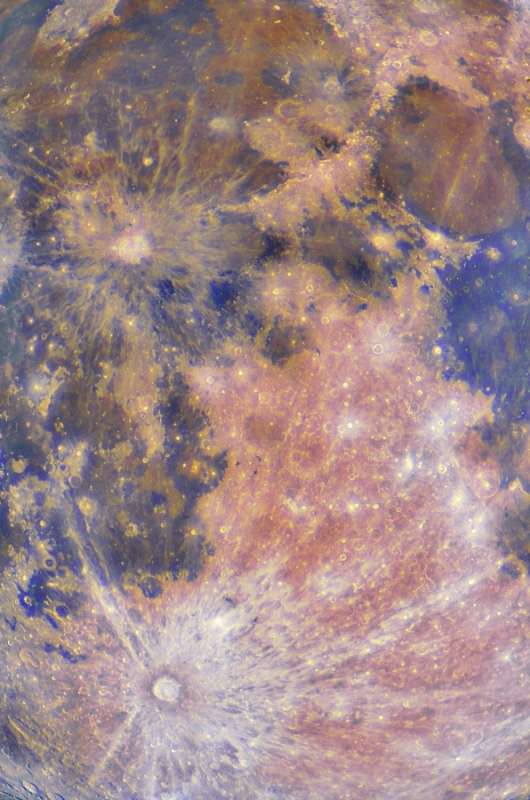
|
Credit & Copyright: László Francsics
Explanation:
The Moon
is normally seen in subtle shades of grey or yellow.
But small, measurable color differences
have been greatly exaggerated
to make this telescopic, multicolored,
moonscape captured during the Moon's full phase.
The different colors are recognized to
correspond to real differences in
the chemical makeup of the lunar surface.
Blue hues reveal
titanium rich
areas while orange and purple colors
show regions relatively poor in titanium and iron.
The familiar
Sea of Tranquility, or Mare Tranquillitatis,
is the blue area in the upper right corner of the frame.
White lines radiate across the orange-hued southern lunar highlands
from 85 kilometer wide ray crater Tycho
at bottom left.
Above it, darker rays from crater Copernicus
extend into the Sea of Rains
(Mare Imbrium)
at the upper left.
Calibrated by
rock samples
from the Apollo missions, similar multicolor
images from spacecraft
have been used to explore
the
Moon's global surface composition.
|
January February March April May June July August September October November December |
| |||||||||||||||||||||||||||||||||||||||||||||||||||||||
NASA Web Site Statements, Warnings, and Disclaimers
NASA Official: Jay Norris. Specific rights apply.
A service of: LHEA at NASA / GSFC
& Michigan Tech. U.
Based on Astronomy Picture
Of the Day
Publications with keywords: Copernicus - mare - crater - iron
Publications with words: Copernicus - mare - crater - iron
See also:
